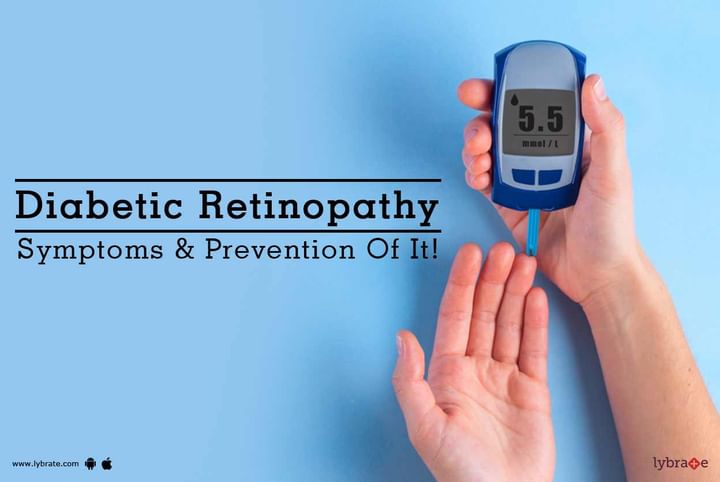Diabetic Retinopathy - Symptoms & Prevention Of It!
Diabetic retinopathy is not a standalone disease; it is a side effect of diabetes. This is a condition that affects the eyes. It may start with no tangible harm to the eyes at all. With time, however, it progresses to complete blindness.
This disease damages the light sensing tissue inside the retina. Both diabetes type 1 and 2 can cause this disease as a complication. Your risk increases with the duration you have had diabetes for.
Symptoms of diabetic retinopathy:
The following signs if exhibited by your body, will help you identify diabetic retinopathy:
• Blind spots in your vision, areas in which you cannot see anything
• Problems with spotting and telling different colours apart
• Alternating bouts of adequate and inadequate vision
• Small wriggling or floating lines in your field of vision
• A weakening eyesight
Diagnosing diabetic retinopathy: When to talk to your doctor?
If you suspect the initial warning signs in your vision, begin periodic visits to your ophthalmologist round the year. The frequent examinations will help you keep track of any deteriorating symptoms and take the necessary action.
Start these visits also if your vision is weakening, objects look blurry at the seams or random spots and small dark figures crop up in your line of vision.
The types of diabetic retinopathy
This disease may be of two different types. They are:
1.) Early diabetic retinopathy: This is the more common and less advanced variety of the two. In this stage, the formation of new, healthy blood vessels in the retina is prevented, and the older healthy ones get distorted in shape. The damage progresses until you get it treated.
2.) Advanced diabetic retinopathy: This is the more severe of the two varieties. In it, along with no new healthy vessels being produced, old impaired ones stop working and new distorted growths start occurring. This can lead to even glaucoma with time.
Diabetic retinopathy: Better prevented than cured
While this disease cannot be entirely prevented, the risks of it ever happening to you can be greatly reduced by:
• Be on alert for failing vision: Keep an eye out for any changes or peculiarities in your vision, which was not there before. It may be a sign of impending diabetic retinopathy.
• Try to remedy your diabetes: Eat healthy, include a lot of greens in your diet. Also, try to get enough exercise every day of the week.
• Give up smoking: It is a habit that exacerbates diabetes complications, or indirectly even leads to diabetes, so you should steer clear of it.
Diabetic retinopathy is a disease that can cause permanent blindness, so utmost care must be taken to reduce the risks or ever catching it. It is a diabetic complication that affects your retina, but by adopting a healthier lifestyle, you can keep both diabetes and its related health risks at bay.



+1.svg)
